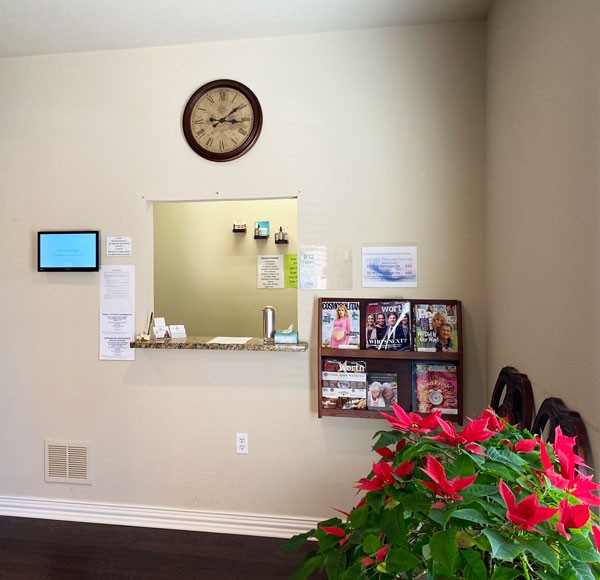

EDTA Chelation therapy is relatively non-toxic and risk-free, especially compared with other treatments. Patients typically drive themselves home after their chelation treatment with no difficulty. The risk of significant side effects, when properly administered, is less than 1 in 10,000 patients treated. By comparison, the overall death rate as a direct result of bypass surgery is approximately 3 out of every 100 patients, varying with the hospital and the operating team. The incidence of other serious complications following surgery is much higher, up to 35%, including heart attacks , strokes, blood clots, mental impairment, infection & prolonged pain. Chelation therapy is at least 300 times safer than bypass surgery.
Occasionally, patients may suffer minor discomfort at the site where the needle enters the vein. Some temporarily experience mild nausea, dizziness, or headache as an immediate aftermath of treatment, but in the vast majority of cases, these minor symptoms are easily relieved. When administered by a physician who is properly trained in this type of therapy, chelation is safer than many other prescription medicines. Statistically speaking, the treatment itself is safer than the drive to the doctors office.
If EDTA chelation therapy is given to quickly or in too large a dose it may cause harmful side effects, just as an overdose of any other medicine can be dangerous. Reports of serious and even rare fatal complications many years ago stemmed from excessive doses of EDTA, administered too quickly & without proper laboratory monitoring.
While it has been stated that EDTA chelation therapy is damaging to the kidneys, the newest research (consisting of kidney function test done on 383 consecutive chelating patients, before and after treatment with EDTA for chronic degenerative diseases) indicates the reverse is TRUE.
Prior to Chelation therapy a complete medical history is obtained. Copies of pertinent medical records and summaries of hospitals admissions. A thorough head-to-toe examination will be preformed. A complete list of medications you are currently on will be recorded, including times per day and dosages. Any and all allergies will be noted.
Blood and urine specimens will be obtained to insure that there are no contraindications to chelation therapy. Kidney function will be carefully assessed. Blood pressure and pulse ox will be performed each time. A consultation with other medical specialists may be requested.
No. Chelation’s earliest application with humans was during World War II when the British used another chelating agent, British Anti-Lewesite (BAL), as a poison gas antidote. BAL is still used today in medicine.
EDTA was first introduced into medicine in the United States in 1948 as a treatment for industrial workers suffering from lead poisoning in a battery factory. Shortly thereafter, the U.S. Navy advocated chelation therapy for sailors who had absorbed lead while painting government ships and dock facilities. In the years since, chelation therapy has remained the undisputed treatment-of-choice for lead poisoning, even in children with toxic accumulations of lead in their bodies as a result of eating leaded paint from toys, cribs or walls.
In the early 1950?s it was speculated that EDTA chelation therapy might help the accumulations of calcium associated with hardening of the arteries. Experiments were performed and victims of atherosclerosis experienced health improvements following chelation?diminished angina, better memory, sight, hearing and increased vigor. A number of physicians then began to routinely treat individuals suffering from occlusive vascular conditions with chelation therapy. Consistent improvements were reported for most patients.
Published articles describing successful treatment of atherosclerosis with EDTA chelation therapy first appeared in medical journals in 1955. Dozens of favorable articles have been published since then. No unsuccessful results have ever been reported (with the exception of several recent studies with very flawed data presented by bypass surgeons in an attempt to discredit this competing therapy). There have also been a number of editorial comments of a critical nature made by physicians with vested interests in vascular surgery and related procedures.
From 1964 on, despite continued documentation of its benefits and the development of safer treatment methods, the use of chelation for the treatment of arterial disease has been the subject of controversy.
Yes. There is no legal prohibition against a licensed physician using chelation therapy for whatever conditions he or she deems it to be in the best interests of their patients, even though the drug involved, EDTA, does not yet have atherosclerosis listed as an indication on the FDA-approved package insert. The FDA does not regulate the practice of medicine, but merely approves marketing, labeling & advertising claims for drugs & devices in interstate commerce.
The American College for the Advancement in Medicine conducts educational courses in the proper and safe use of IV EDTA twice a year. They also publish a Physicians’ Protocol which contains professionally recognized standards of medical practice for chelation therapy.
Now on the question of legality, courts hve expressed the opinion that a physician who withholds information about the availability of other treatment choices, sush as chelation therapy, prior to preforming vascular surgery (along with all other treatment modalities) is in violation of the doctrine of informed consent. Withholding information about a form of treatment may be considered a form of mal-practice, if as a result, a patient is deprived of possible benefit. Therfore, it is the doctors who refuse to recognize & inform their patients about chelation who are risking legal liability – not those chelating physicians.

Innovate Health is very pleased to advise its patients that we have contracted with the Prescott Medical Group for Prescott’s licensed medical providers to provide medical services twice a week out of our Innovate Health facility at 4821 Merlot Avenue Suite 240, Grapevine, Texas 7605. The medical services made available through Prescott will be by appointment only. You can arrange your appointment by calling our offices (817) 329-3552 or you can schedule an appointment with Prescott while in our clinic for chiropractic services.
All medical services to be made available by Prescott will be wellness oriented and have been designed by Prescott to supplement the chiropractic services you receive through our facility. All medical services will be provided by licensed medical providers employed by Prescott. The medical services to be made available are as follows:


Powered by Protueri | All Rights Reserved. Copyright 2022 Protueri.com LLC | Privacy Notice